05 Apr Workplace Substance Abuse
Businesses across the United States deal with challenges of substance abuse epidemics, including methamphetamines, prescription drugs, and heroin abuse.
However, beyond the devastating impact on individuals and communities, these epidemics pose a significant risk to organizations themselves. Workplace substance abuse introduces a host of liabilities and threats that can undermine business success if left unaddressed.
Identifying the Risks
Substance abuse in the workplace poses significant risks that can impact employee safety, productivity, and legal compliance. Here are some key considerations:
- Impaired Performance: Employees under the influence of drugs or alcohol are more prone to errors, accidents, and reduced productivity. This can jeopardize the quality of work, disrupt operations, and lead to financial losses for the business.
- Safety Concerns: Substance abuse significantly increases the risk of workplace accidents and injuries. Impaired judgement and coordination can result in incidents that harm employees, damage property, and expose the business to costly liability claims and workers’ compensation expenses.
- Legal Compliance: Employers have a duty to maintain a safe and healthy work environment under federal and state laws. Failure to address substance abuse issues can result in violations of occupational health and safety regulations, leading to fines, penalties, and potential legal action against the business.
- Reputational Damage: Incidents related to substance abuse can tarnish the business’s reputation, eroding customer trust, investor confidence, and employee morale. Negative publicity and public perception can have long-term consequences for brand image and competitiveness in the marketplace.
Mitigating the Risks
To address workplace substance abuse, consider implementing the following measures:
- Implementing Policies: Develop clear and comprehensive policies outlining expectations, prohibitions, and consequences related to substance abuse in the workplace, including protocols for drug testing. Educate employees about these policies and provide resources for support and assistance. Drug testing serves as a proactive measure to deter drug use among employees, reinforce a sober work environment, and promote accountability and responsibility. This approach helps ensure a productive and hazard-free work environment.
- Training and Education: Invest in training programs to raise awareness about the dangers of substance abuse, signs of impairment, and procedures for reporting concerns. Equip supervisors and managers with the knowledge and skills to address substance-related issues effectively.
- Workplace Wellness Initiatives: Promote a culture of health and well-being by offering resources and programs that support employees in managing stress, seeking assistance for substance abuse problems, and maintaining a healthy work-life balance.
- Risk Management Strategies: Partner with an insurance agency to assess and mitigate the financial risks associated with substance abuse in the workplace. Explore insurance coverage options such as general liability, workers’ compensation, and employment practices liability insurance to safeguard the business against potential liabilities and losses.
Investing in risk assessment and mitigation strategies is crucial for maintaining a safe and productive workplace. By prioritizing employee well-being and compliance, businesses can build a resilient foundation for success.
If the protection of your business and employees is important to you, you may want to assess where your risks lie.
Our Intelligent Quotient for Risk Management is a non-evasive, less than 5-minute, assessment that you can complete to see where your business is regarding how effectively it handles workplace risks. Upon completing the assessment, you will receive a free evaluation score.
We are here for you for all your insurance needs.
To discuss your options, contact one of our talented Risk Advisors today!


No Comments